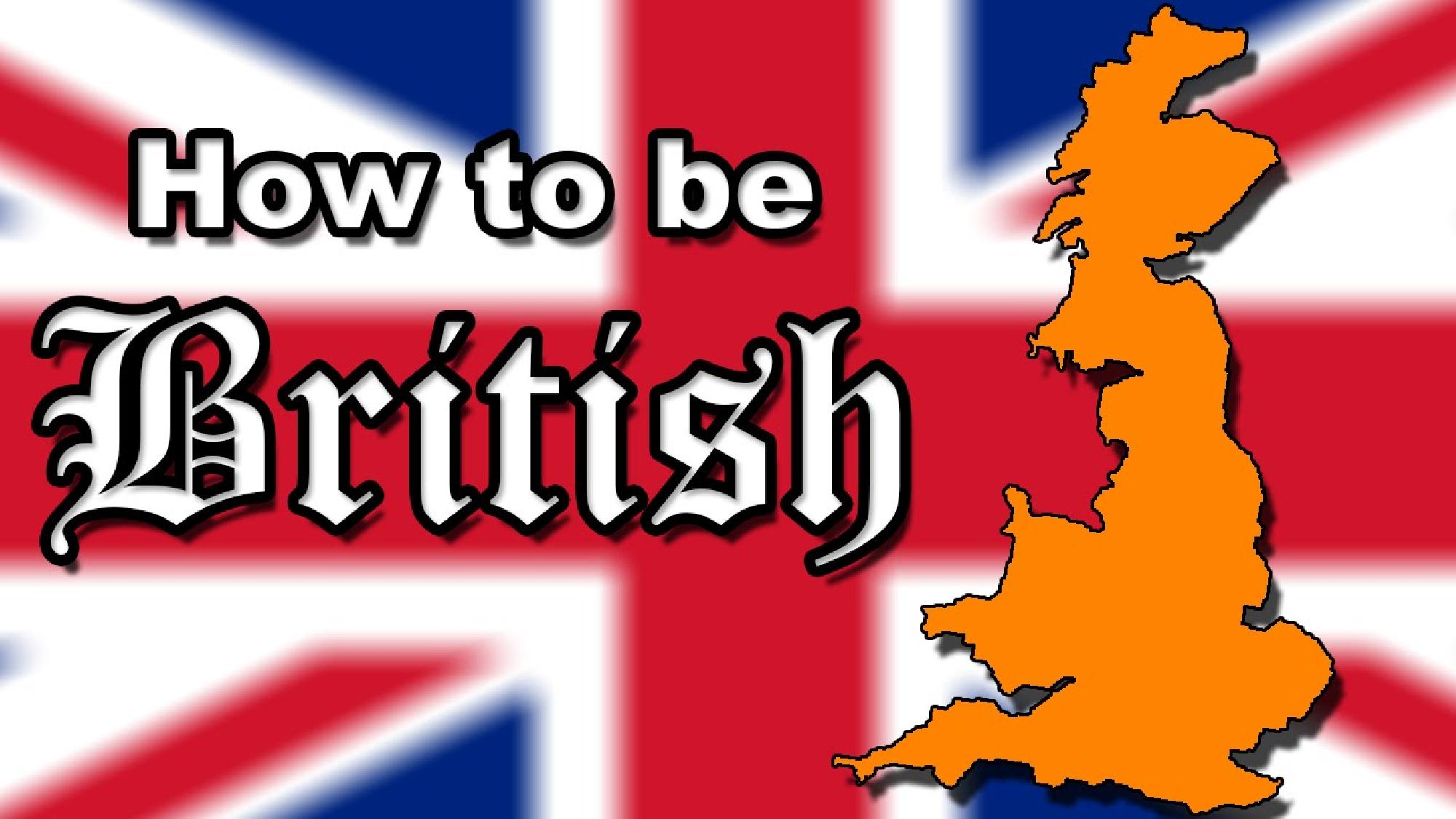
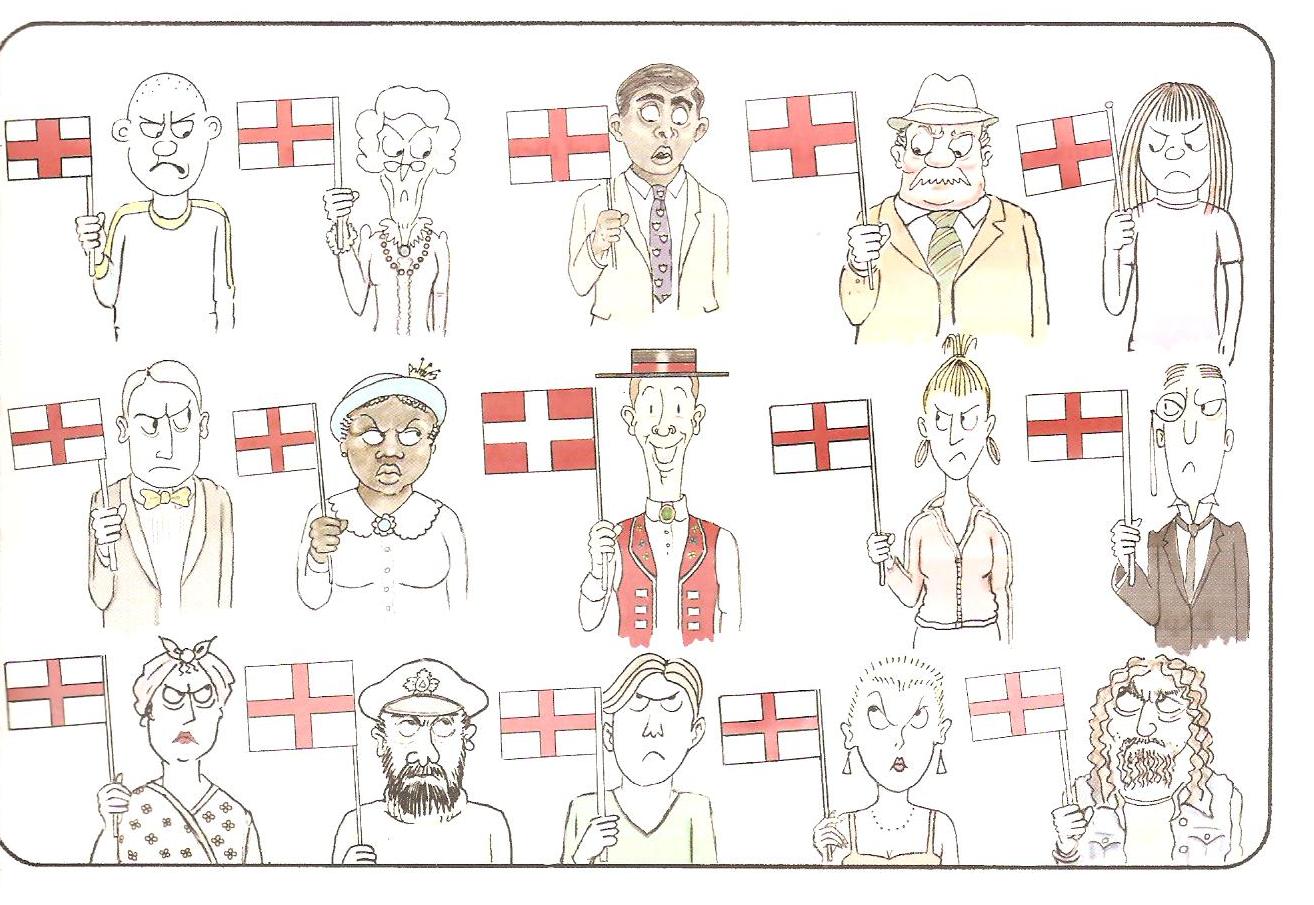 On April 23rd every year, patriotic English people hang the flag of St. George from their houses, paint their faces red and white, and think of England... or, at least, try to. For the sad fact is that while Scots, the Welsh and the Irish are only too happy to explain at length who they are, the English are rather at a loss. This was not always so, of course: brides in Victorian times were advised to "close your eyes and think of England" on their wedding night. This was to remind them that, however unpleasant it might be, they were doing their duty to their country (an idea that many older readers will agree has rather fallen out of fashion lately). So what reasuring images of England and its great history did those innocent brides summon up to reassure or anaesthetise? The waves breaking on Dover Beach? James Watt"s mighty steam engine? Or just steaming hot dish of toad in the hole? Sadly, we shall never know.
On April 23rd every year, patriotic English people hang the flag of St. George from their houses, paint their faces red and white, and think of England... or, at least, try to. For the sad fact is that while Scots, the Welsh and the Irish are only too happy to explain at length who they are, the English are rather at a loss. This was not always so, of course: brides in Victorian times were advised to "close your eyes and think of England" on their wedding night. This was to remind them that, however unpleasant it might be, they were doing their duty to their country (an idea that many older readers will agree has rather fallen out of fashion lately). So what reasuring images of England and its great history did those innocent brides summon up to reassure or anaesthetise? The waves breaking on Dover Beach? James Watt"s mighty steam engine? Or just steaming hot dish of toad in the hole? Sadly, we shall never know.
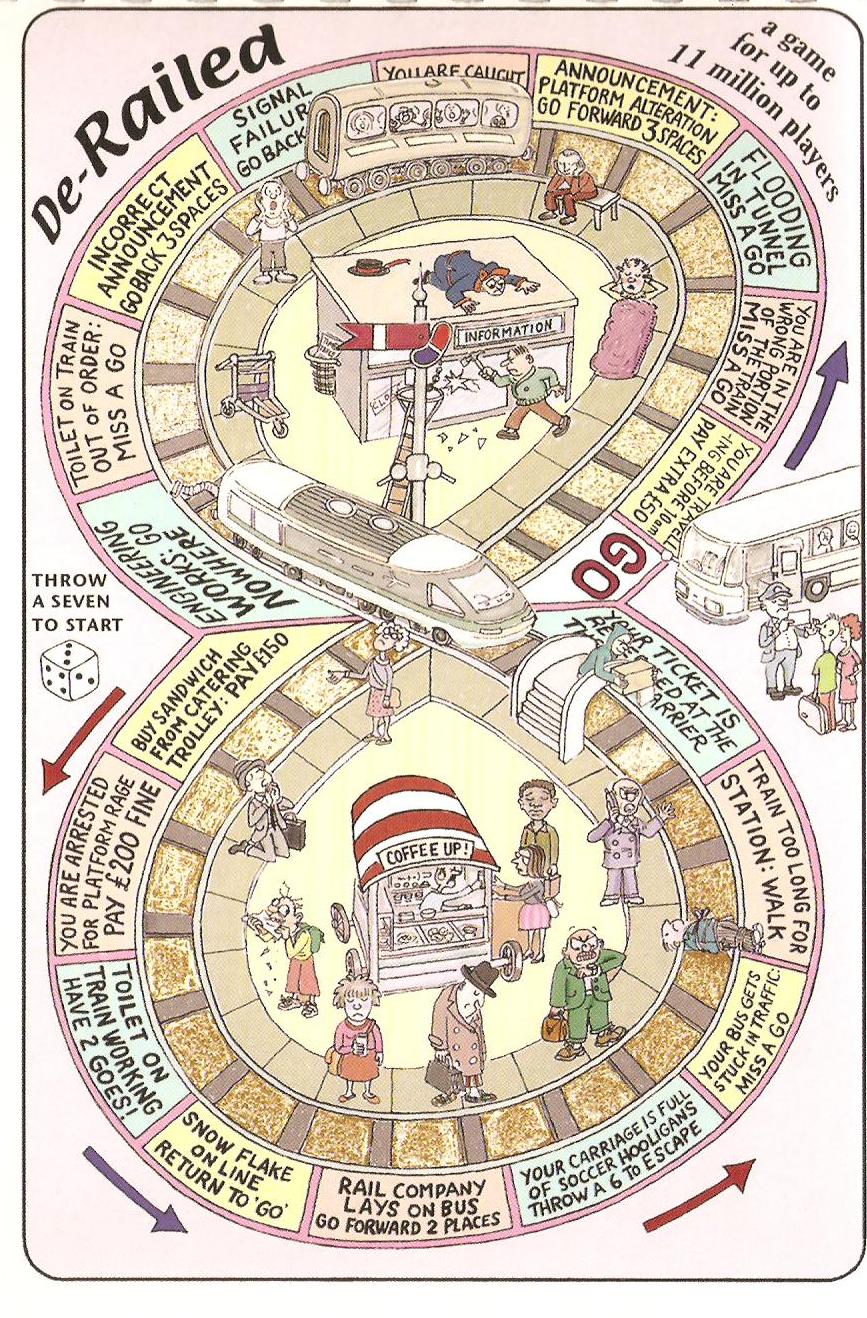
It is all too common these days to hear rail travellers grumbling into their mobiles about delays, cancellations and failed trains. But such things are really minor inconveniences when compared to the huge improvements made in provision of continental-style coffee and pastries on station forecourts, not to mention the gaily-coloured uniforms of many private rail companies whose trains come and go (or remain) at the platforms.
We apologise for the late running of this train, which is due to the length of the journey.
All of us at some time have sat on a train, wondering why it"s not moving or the lights have suddenly gone out. But it"s all too easy to criticise and to forget that the railways have had to deal with years of under-investment. Getting from A to B is not the straightforward business it used to be. At least we can now listen to a cheerful recorded announcement informing us of the driver"s name, or that the buffet has just closed. We should stop grumbling, sit back and enjoy the ride. Or, rather, the wait.
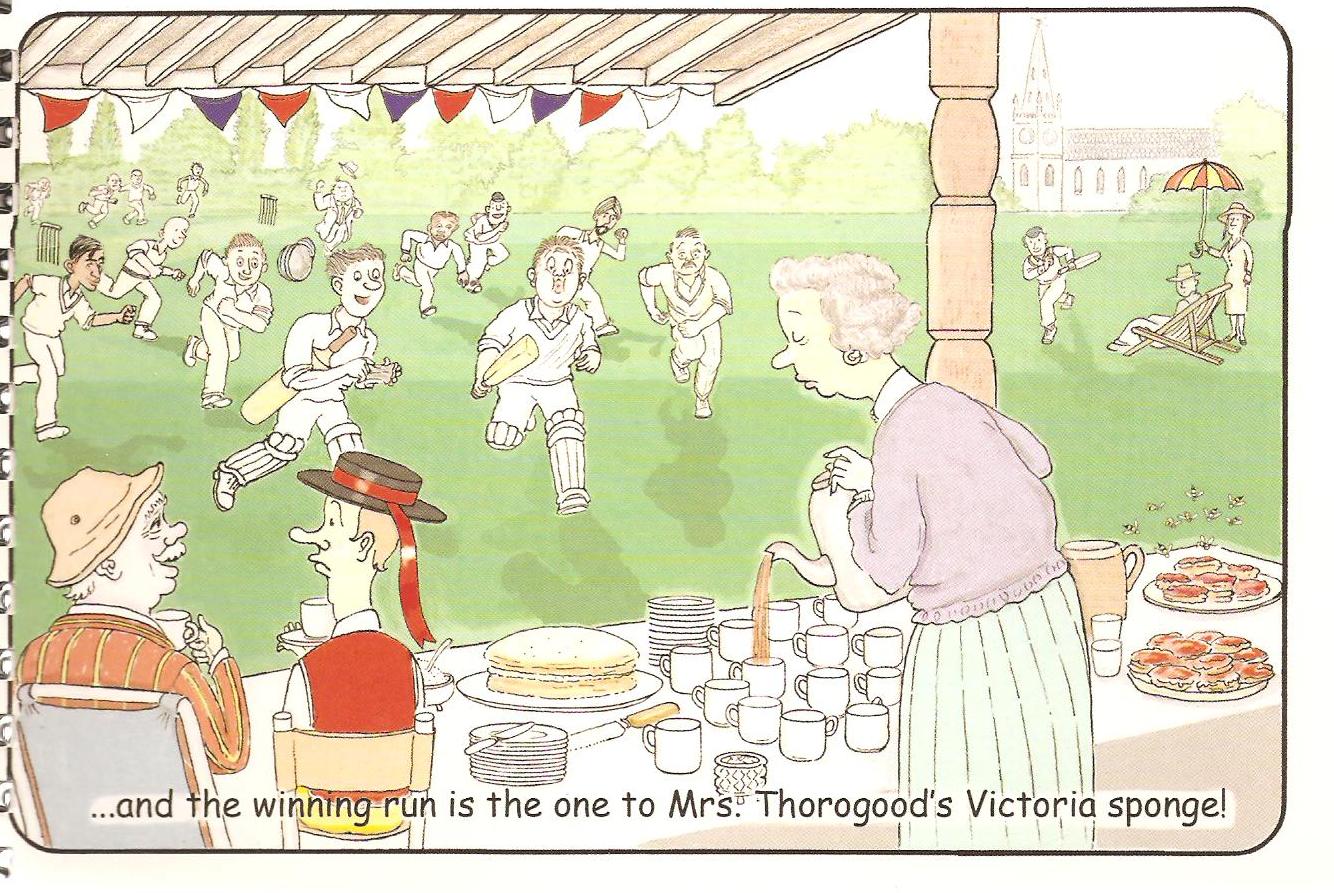
Cricket is not merely a sport, but part of the English soul, and visitors should treat it with the quiet respect accorded to the rites of an unfamiliar religion.
Altough the general aim of the battng side is to score runs and the bowling side to take wickets, the main priority for all is to enjoy a pleasant afternoon in the fresh air and work out an appetite for tea. It should be treated not so much as a contest, but as a shared activity, like building a bonfire or putting up a tent (activities also likely to be interrupted by rain).
Cricket is a common topic of earnest conversation in pubs and places of work, particularly in the summer. Even if you never play or watch a match it is recommended that you familiarize yourself with some basic cricketing terms in order not to be socially and culturally disadvantaged. For example, Perkins is out - caught in the slips off the bowling of Glover for 9. Or, What a splendid cover driver by Wilkins!
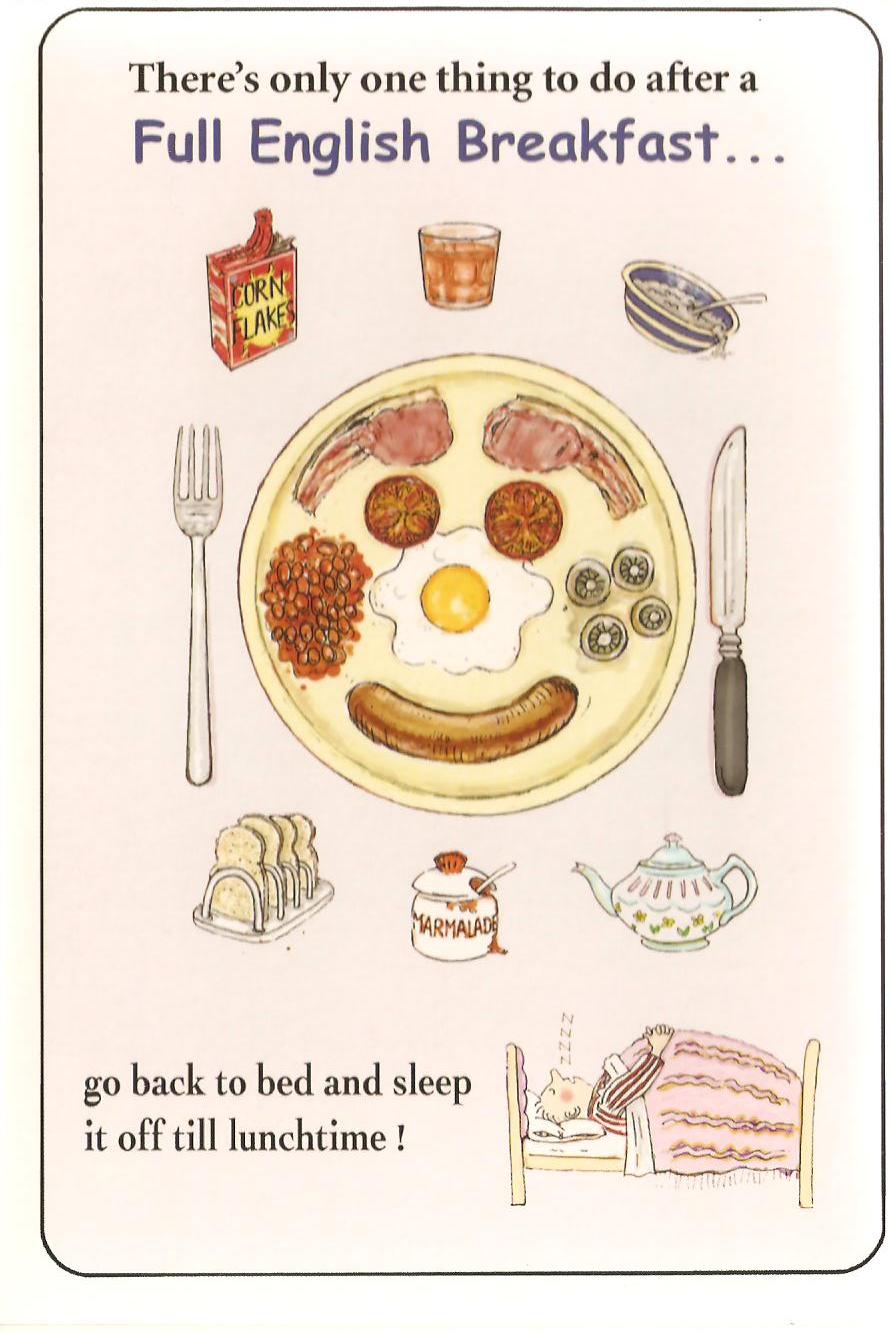
Fried egg, steaky bacon, sausage, grilled tomato, mushrooms, baked beans, black pudding, a fried slice, not to mention the obligatory starters and accompaniments: grapefruit segments, stewed prunes, cereals, porridge, numerous rounds of toast, butter and marmalade, and, of course, unlimitied cups of tea. With a head start like that no wonder the British built an Empire that girdled the earth, while their unlucky competitors struggled out into the world with only a bowl of milky coffee and tiny bun to line their stomachs.
Sadly, in these decadent days, it is left to a determined few to start the day with the time-honoured "fry-up". The rest run from bed to bathroom to front door pausing only to grab a "breakfast bar" or some equally degenerate snack substitute.
Happily though "the full English" survives in transport cafes and B&Bs thoughout the land and the emergence of the popular "all-day breakfast" clearly demonstrates that the time ripe for the British once more to fulfil their potential on the world"s stage.
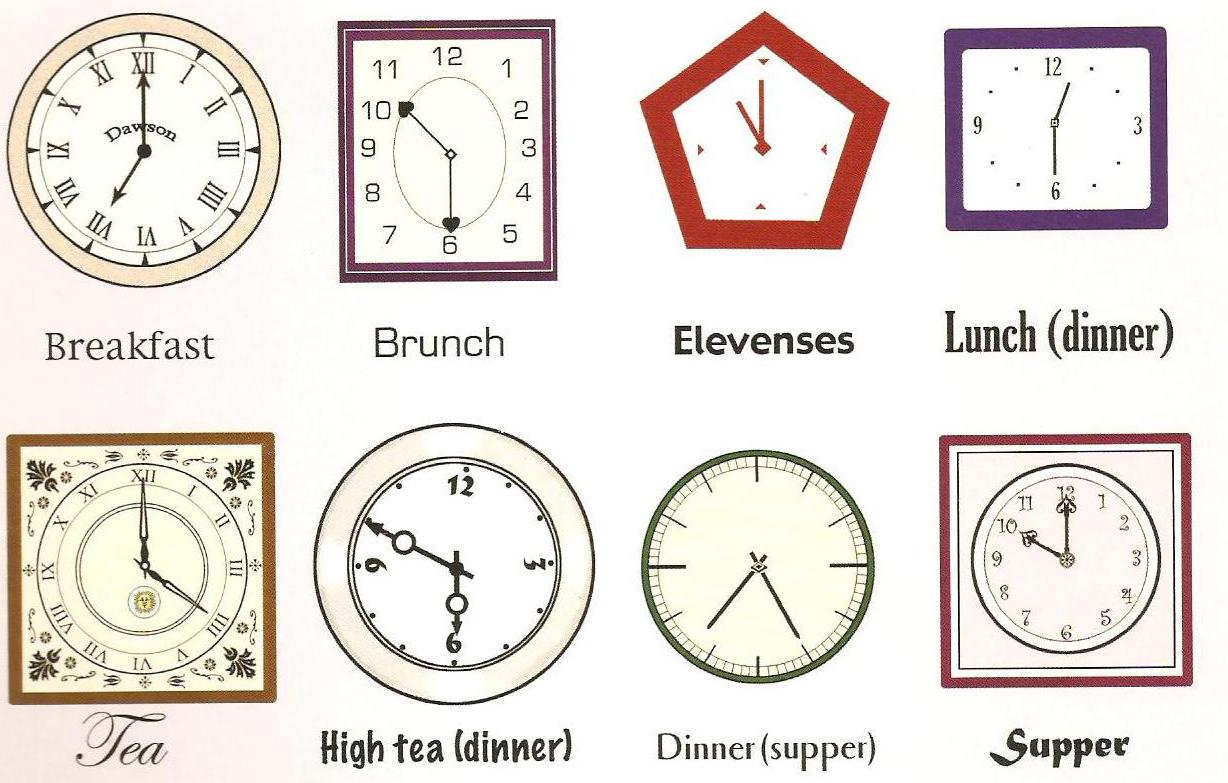
The foreign visitor invited to a British home for a meal should be aware of the precise terminology we use to describe what we eat and when we eat it. This is to avoid the embarrassment of arriving five hours early (or late), too hungry or not hungry enough.
Lunch: almost certainly in the middle of the day. May consist of anything from sandwiches to a three-course meal.
Lancheon: you will need to use a serviette.
Dinner: in the South of England around 7 or 8 pm, but north of The Wash probably a hot meal in the middle of the day.
Tea: could be sandwiches, tea or cake at 4pm, or up North a hot meal around 5.30.
High tea: a larger meal than tea, probably involving pork pie and sliced beetroot.
Supper: used by metropolitan sophisticates to name dinner (braised ptarmigan and halloumi patties with a blueberry coulis, etc.) eaten fairly late in the evening; to humbler folk, a bedtime snack such as cheese biscuits with hot milky drink.
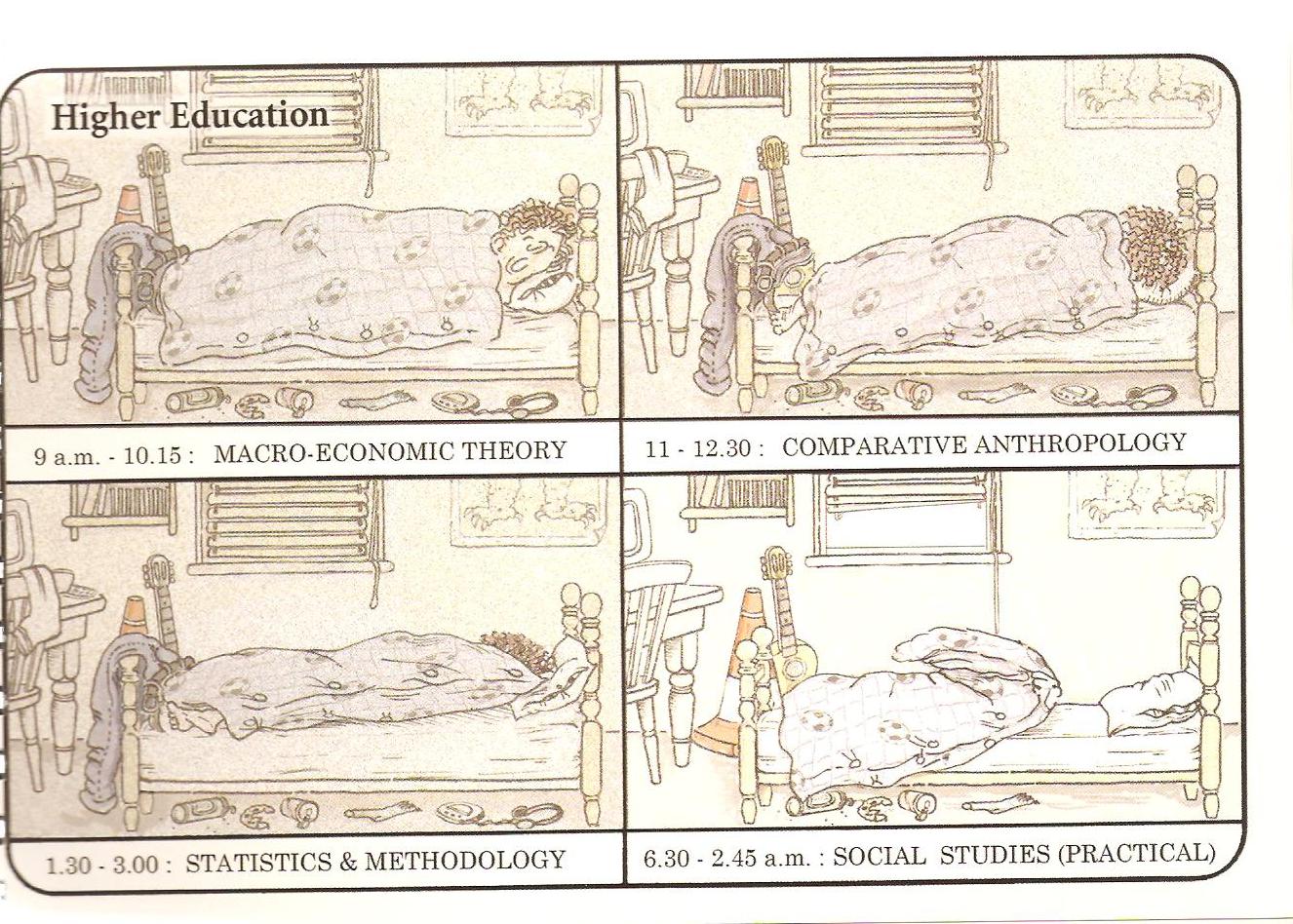
Britain has some of the oldest and most prestigious universities in the world. Young people who want the best continue to favour these ancient seats of learning, to sit and study at the very same ink-stained benches where sat the illustrious historians, poets, scientists and philosophers who shaped our modern world. In former times, places in higher education were accessible only to the privileged classes, and entrance exams discriminated on the basis of academic ability. Now, happily all this has changed.
Thanks to new "equal opportunities" exams, almost any young person who"s got the money can enjoy the benefits of superb resources and tuition. Once, undergraduates were compelled to study abstruse subjets like Mathematics, Geography and Literature, but now courses such as Leisure Marketing, Tennis Court Management, Hip Hop Studies and Money Laundering prepare them for real life and the world of work.
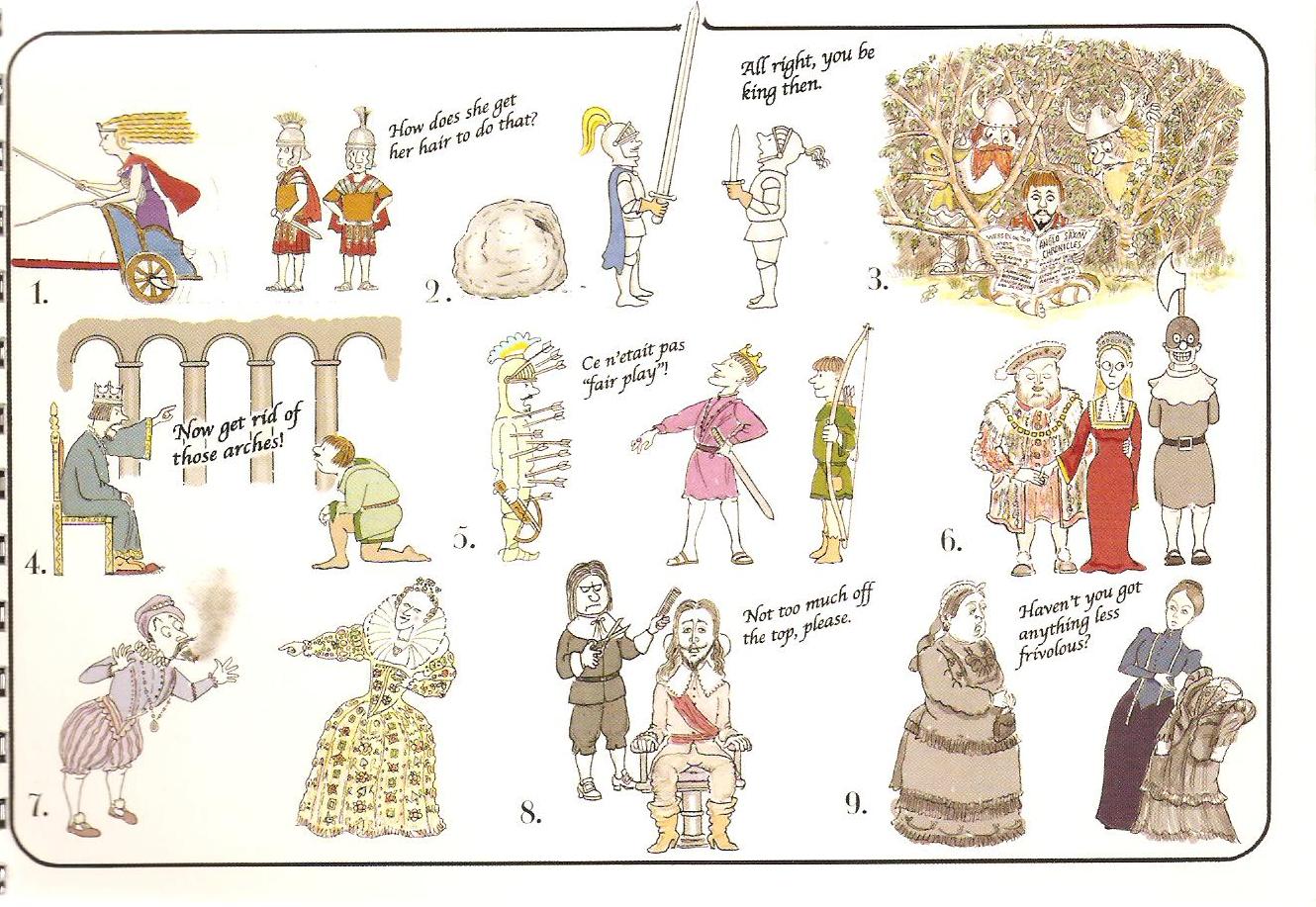
Boudicca (1st century A.D.) Warrior queen and first woman driver (see Woad Rage). Resisted Roman attempts to introduce hot baths, straight roads and sandals with socks.
Arthur (6th century A.D.) United Britain with magical sword of truth and justice. Pledged to return one day but currently lost in the mists of time.
Alfred the Great (871-899) Proved that the Danes were resistible and that Anglo-Saxon men were better at slaying than home baking.
William the Conqueror (1066-1087) Norman king who unfairly defeated the Anglo-Saxons in 1066 with the appalling consequence that everyone had to learn a foreign language.
Henry V (1413-1422) Got revenge for 1066 by defeating foppish French aristocrats at the Battle of Agincourt. Demonstrated that English soldiers fight best when outnumbered by at least ten to one.
Henry VIII (1509-1547) promoted family values and boosted the popularity of marriage by taking six wives in succession to ensure the Succession.
Elizabeth I (1558-1603) Singed the beard of the King of Spain after he improperly proposed to her, then defeated his Armada, proving that Britannia Rules the Waves.
Charles I (1625-1649) made himself unpopular by behaving in a cavalier fashion. Insisted he was divine, so Parliament cut off his head to show that he wasn"t.
Victoria (1837-1901) Taugt us that if you were Top Nation you had to set a good example to other, subject nations by dressing soberly and not laughing at vulgar jokes.
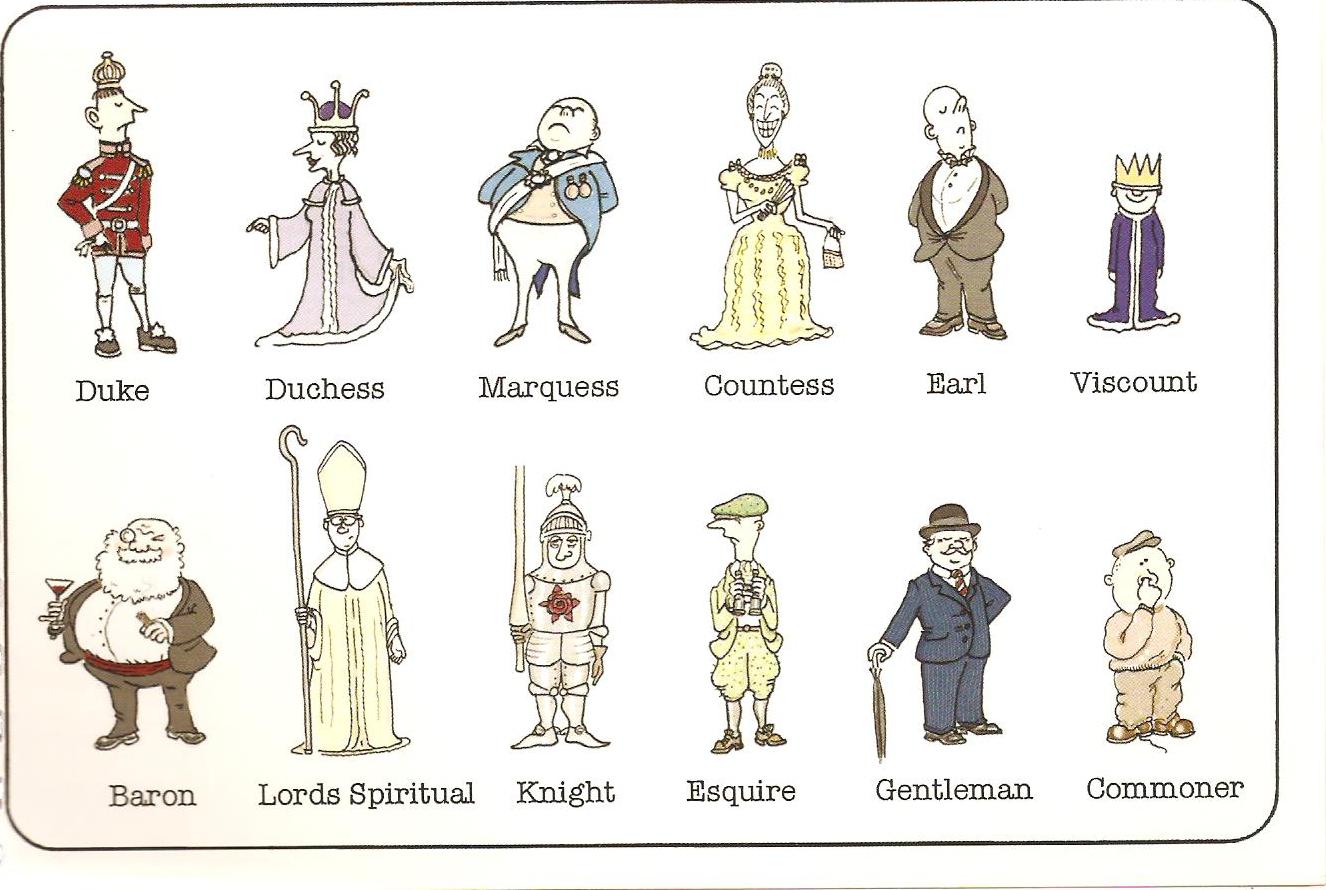
In Britain, it is essential to know who is above you (and if you are a foreign visitor that will be everyone, more or less). Owing to wars and revolutions, or simple carelessness, many European nations have lost these important distinctions between persons of equality and the rest of us. Happily, we British have preserved them in the form of the peerage - an ancient system of classification of the ranks or degrees of nobility.
Sadly, even some Brits are no longer entirely sure of the difference between a belted earl and a baronet or how they should address a duke (the answer is "Your Grace"). This uncertainty can result in a loss of respect for the social order and a mistaken assumption that everyone is equal.
To answer one frequently asked question: you get to be an earl because your father was an earl, whereas you are made a knight by the Queen for doing something outstanding for the nation, e.g. appearing in the tabloid newspapers for more than twenty-three weeks in succession.
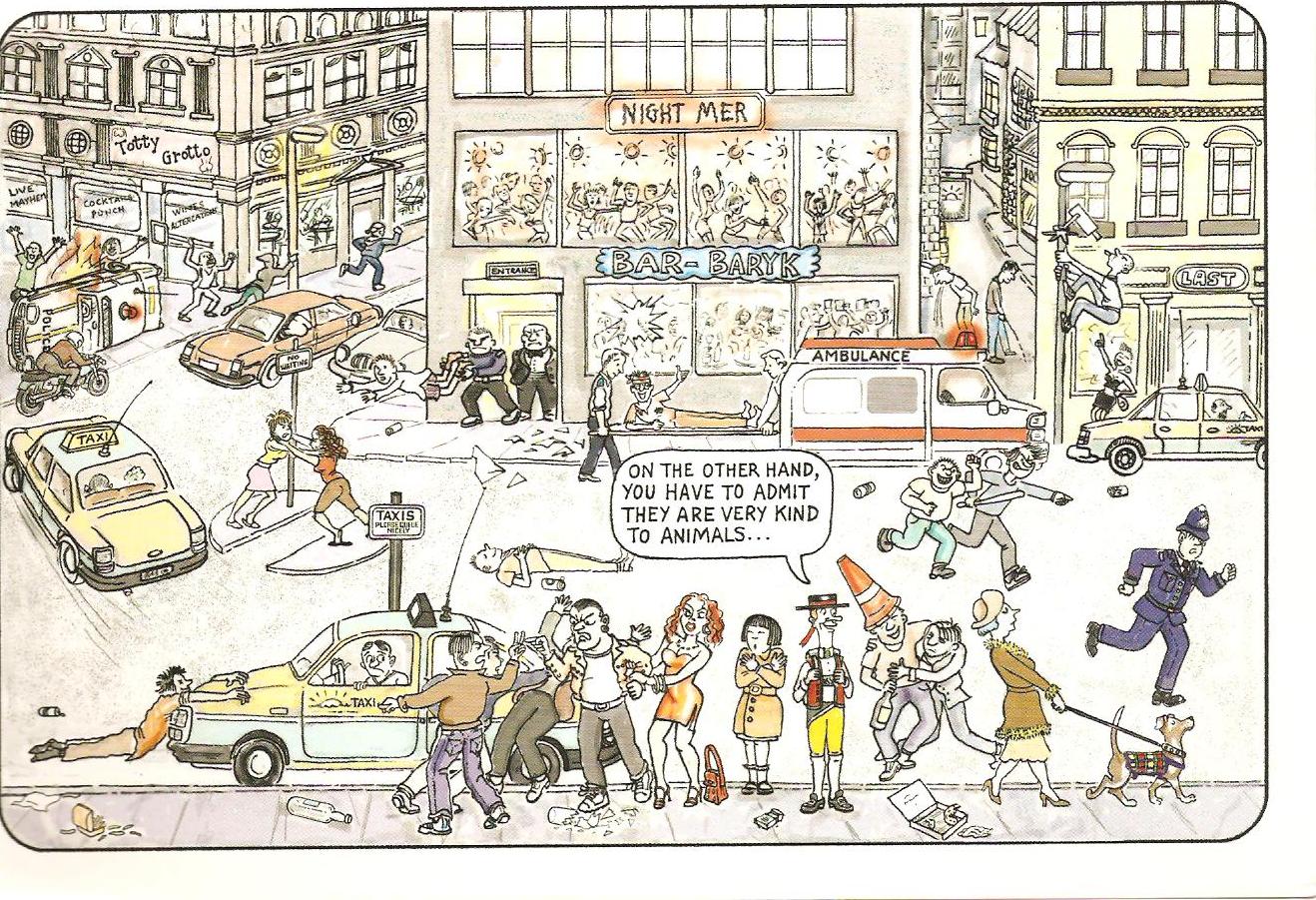
It"s Saturday night and a group of upright young lads in clean white shirts, suits and ties are on their way to their favourite city dance hall. For he unattached amongst them this is the one chance in the week to meet and get to know a young lady.
But, oh dear, the ladies are all dancing in groups - how on earth does a fellow get an introduction? The braver ones go right up and ask for the pleasure of the next dance; the shy ones just stand in the shadows and wistfully sip their half pint of shandy. At 5 past 11 the band finishes with a slow, smoochy song and everyone heads for the exit and the last bus home.
The weekends revels are nearly over: there may be time for a hasty bag of fish and chips on the walk home from the bus stop, but by now everyone"s tired and eager fo bed. It"s all been such fun, but tomorrow is Sunday, and they mustn"t be late for church.
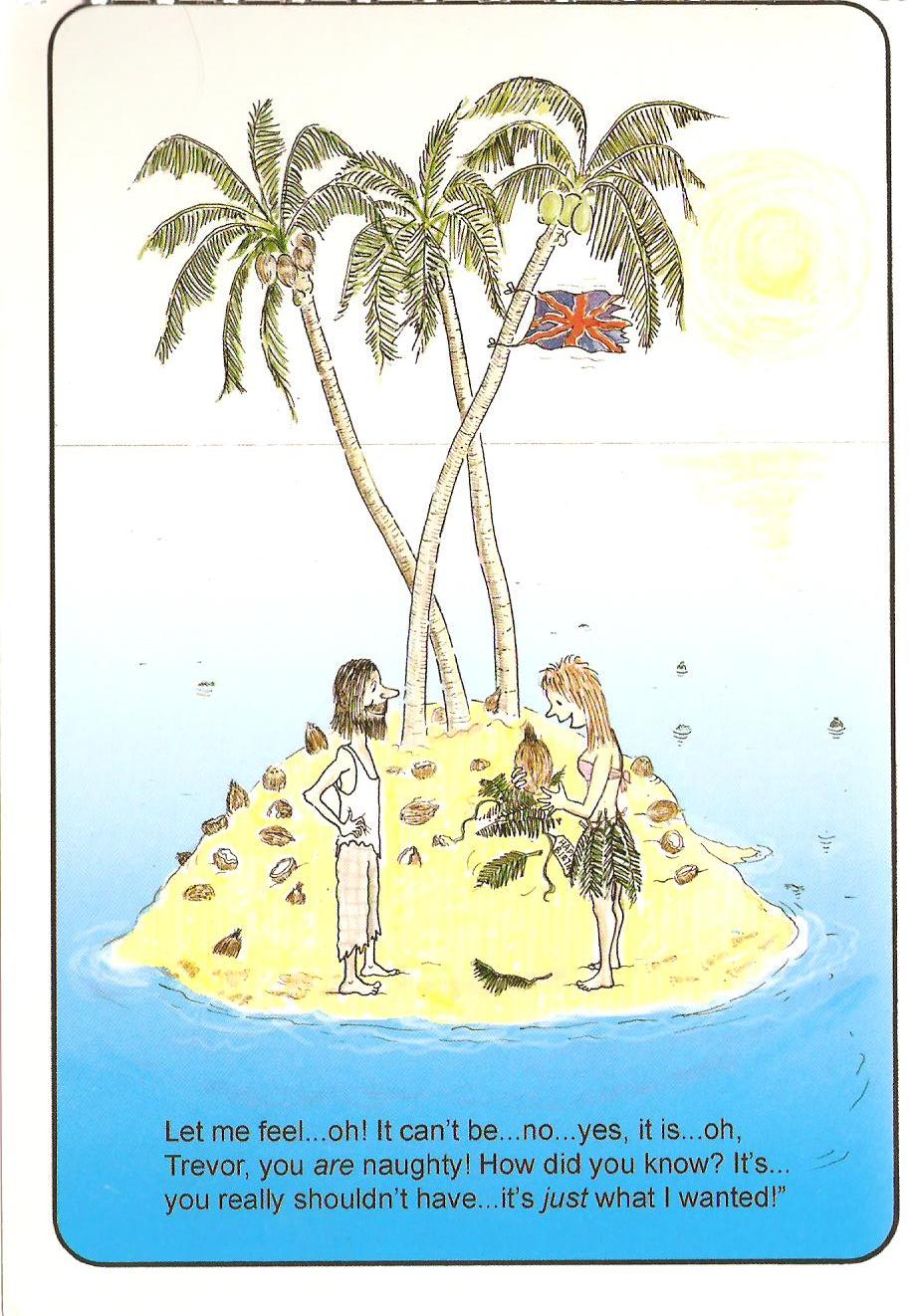
The British love greeting cards. If you wish to be popular, you should send these to your British friends on every possible occasion. For example:
Good Luck in your New Trousers!
Sorry to hear about your Hamster.
Congratulations on your Vasectomy.
Of course, we also love giving and receiving presents. There is some important etiquette involved in this which the foregner would do well to observe.
VISITOR: Here, I bought this for you.
BRITISH PERSON: For me? But...
VIS: It"s only a little something.
BRIT: Oh, you shouldn"t go spending your money on me!
VIS: Really, it"s nothing. I"ve kept the receipt in case you want to change it.
BRIT: Change it? Oh no, it"s perfect!
VIS: I had no idea what to get you.
BRIT: But it"s wonderful!
VIS: well, it was luck, really... I saw it and thought of you.
BRIT: It"s absolutely brilliant. Thank you so much.
VIS: Not at all. I"m glad you like it.
BRIT: I will take the receipt though, if you"ve still got it. Just in case.
VIS: Of course! Here you are.
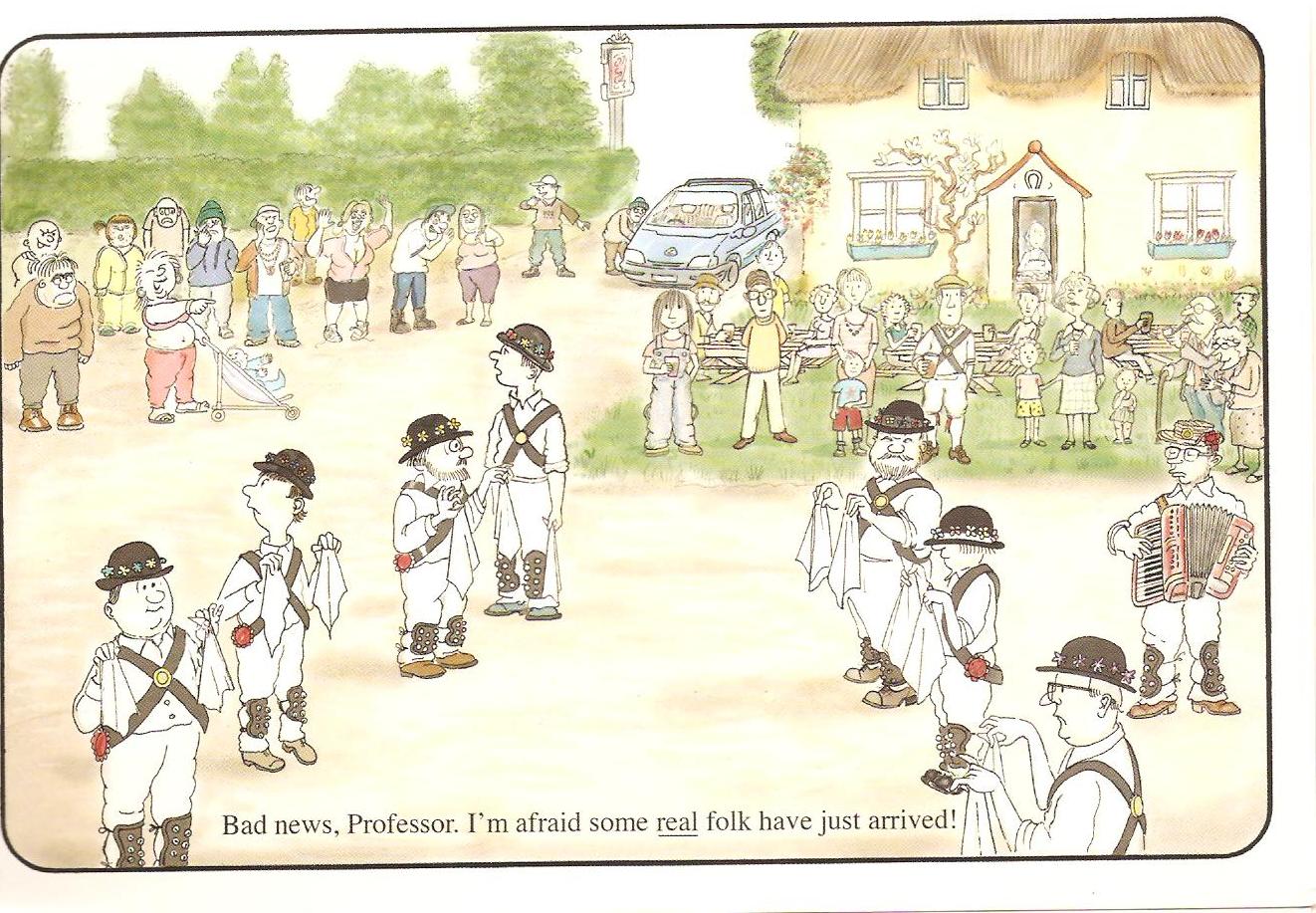
On 1st May take a break from international socialism and head for the nearest English village. Wait outside the pub until the squire invites you to take part in traditional Morris dancing on the green. The sides are usually male and drawn from a cross-section of lawyers and social science lecturers. You will be supplied with the appropriate dress of bowler hat, white shirt, knee-length breeches and socks (with bells attached). You will need your own clean white hadnkerchief to wave at the other dancers and a stoutstick or staff for when you clash with them. The May Day celebrations originate in pre-Christian fertility rituals; however, this should not be seen as a licence to test the virtue of the village maidens, gathered for the "Queen of the May" competition. Leg-lifting should be confined to the dance itself, the proof of manly prowess to the consumption of pints of real ale. It is permitted, however, to sing one or two earthly folk songs, as long as they were collected from the local blacksmith over 100 years ago by scholarly clergyman eager to preserve our oral heritage.
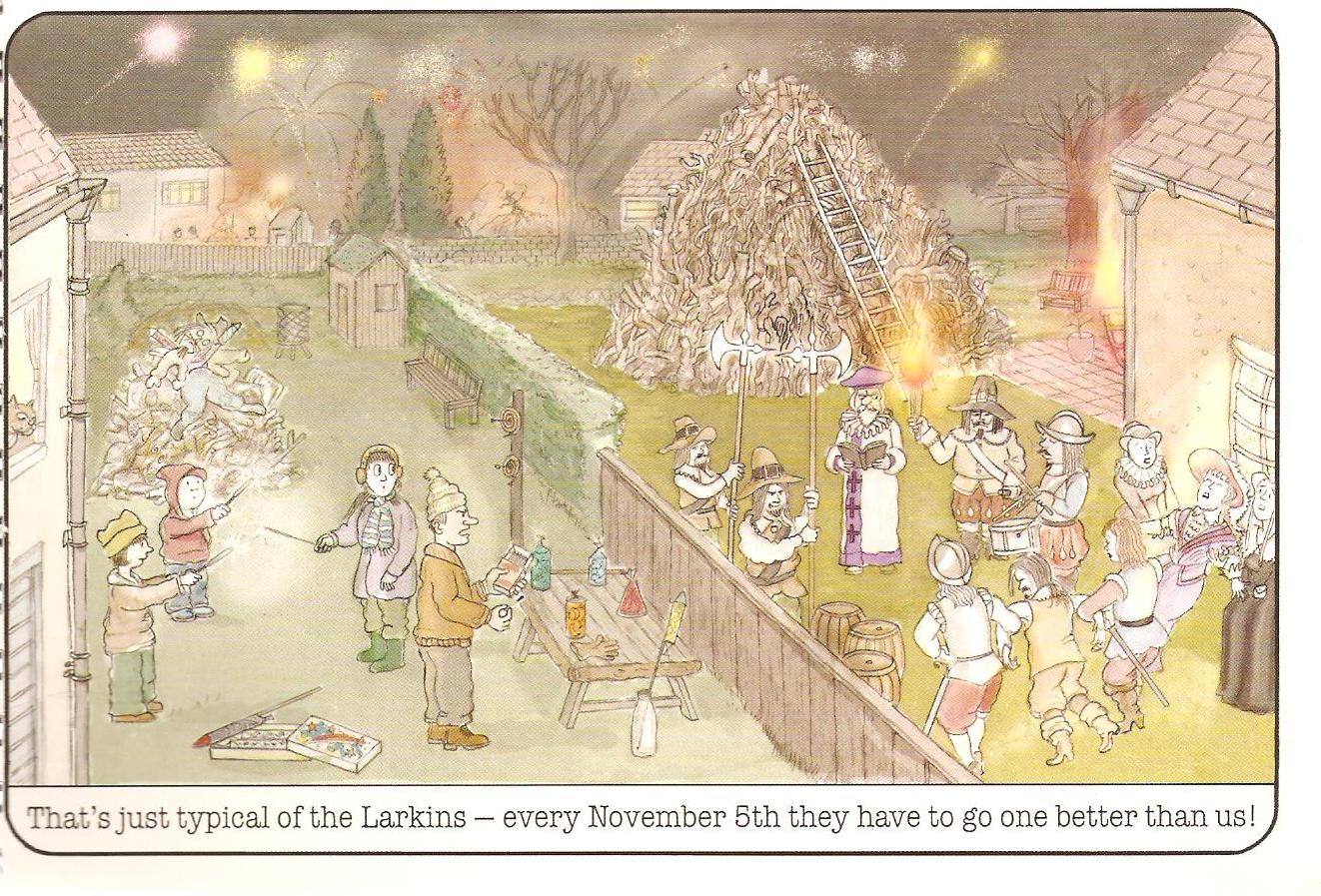
One traditional celebration found only in England is Bonfire Night, on November 5th, the anniversary of the Gunpowder Plot. This was an attempt, led by Guy Fawkes, to blow up King and Parliament. Many foreign visitors tactlessly assume we are celebrating the attempt itself, whereas of course we are rejoicing at its failure.
The traditional Bonfire Night should be spent with family and friends in the back garden, standing around a bon fire of damp twigs, mattresses, old tyres, etc., on top of which sits an effigy of the guy (Fawkes) in Gran"s old cardigan. Trembling dogs and cats are shut into the sitting room; women and children stand safely back, and the oldest male of the household flits back and forth in the darkness with a torch and a small box of assorted fireworks, lighting the blue touchpaper of rockets, roman candles and catherine wheels. Children practise writing their names in the air with sparkles; potatoes and chestnuts are tossed into the embers of the fire to roast; and the whole evening ends when a spark accidentally sets light to next door"s trellis.

Perhaps because of the unpredictability of their own summers, the British are drawn to hotter, drier climates where they will be able to say "Lovely day today, isn"t it?" every single day. But their enthusiasm is their undoing. They go out for a noon-day stroll, hatless and topless, drink a little of the local wine in order to be firendly, then wake upon the beach four hours later looking like overturned pillar boxes. Moreover, the rough and tumble of life abroad - squashed up against strangers on crowded buses, pestered to buy rugs and seashels, having to deal with "gippy tummy", lost wallets or offended locals and all in a strange language - quickly proves too much for them.
The one positive aspect of the exercise is the sudden realisation of just how much they miss home - their own bed, orderly queues, pork scratchings, refreshing drizzle and, above all, everything written in English!
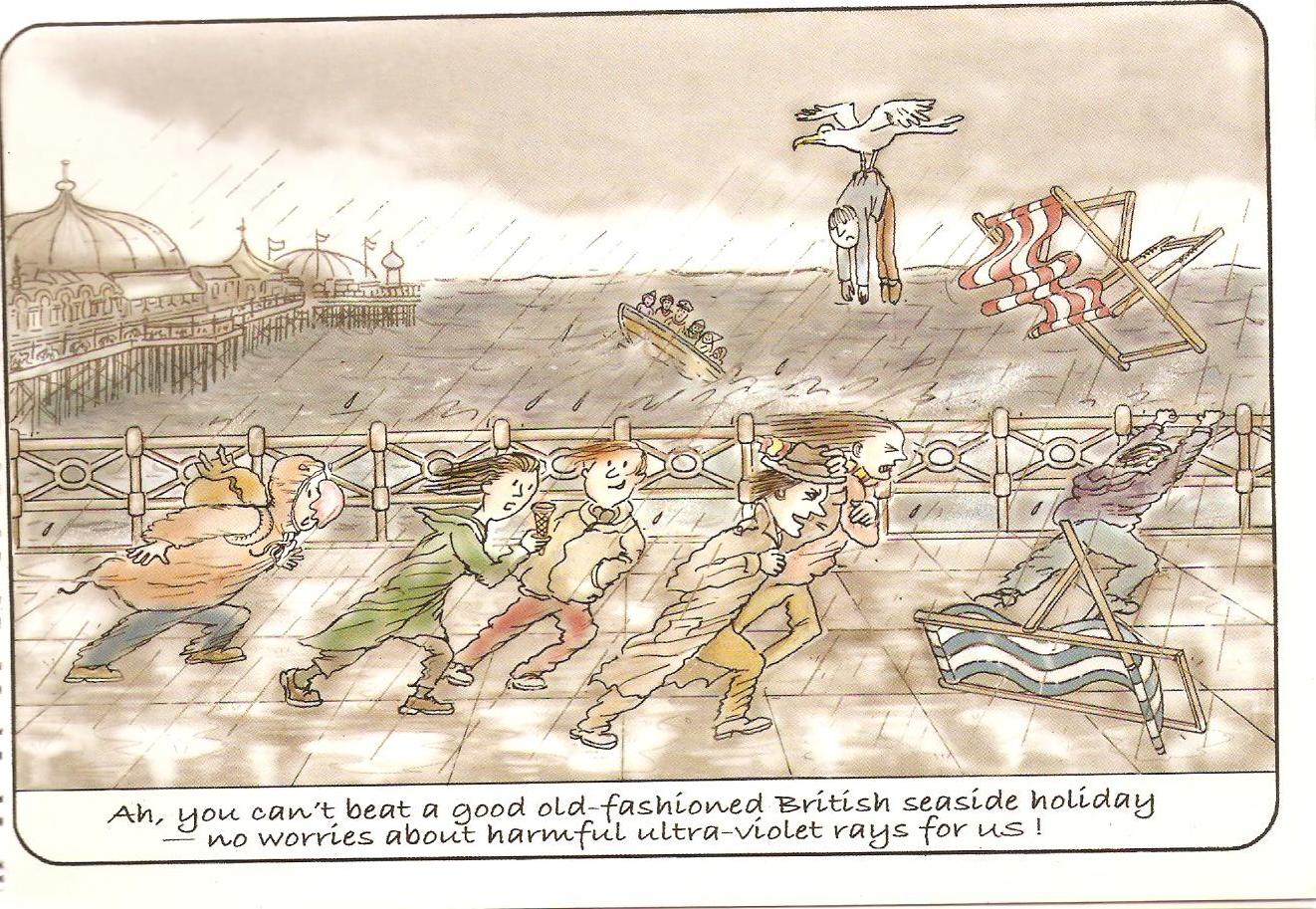
It"s mid-August and all along the esplanade the beach huts have thrown open their freshly-painted doors to the world. The beach itself - mile after mile of striped deckchairs and flapping wind-breaks - is thronged with skimpily-dressed visitors from industrial cities and provincial backwaters. Young men stripped to waist show off their tattoos; girls with big legs and burnt shoulders carry huge pink teddy bears won at the rifle range; families with grizzling children queue for 99s and paper cones of chips; silver-haired seniors, with several pints of tea in them, spill out of the Bingo Hall wondering where their coach has gone. And in the evening everyone"s out again,strolling along the promenade to marvel at illuminations, on their way to another sell-out show featuring some of the great TV stars of yesteryear.
There"s nothing to beat a British seaside holiday. Fley, Skegness, Morecambe, Bognor Regis - such places virtually invented leisure. Bodrum, Miami, Alicante: they do their best but, let"s face it, they are not Bexhill-on-Sea and they never will be.
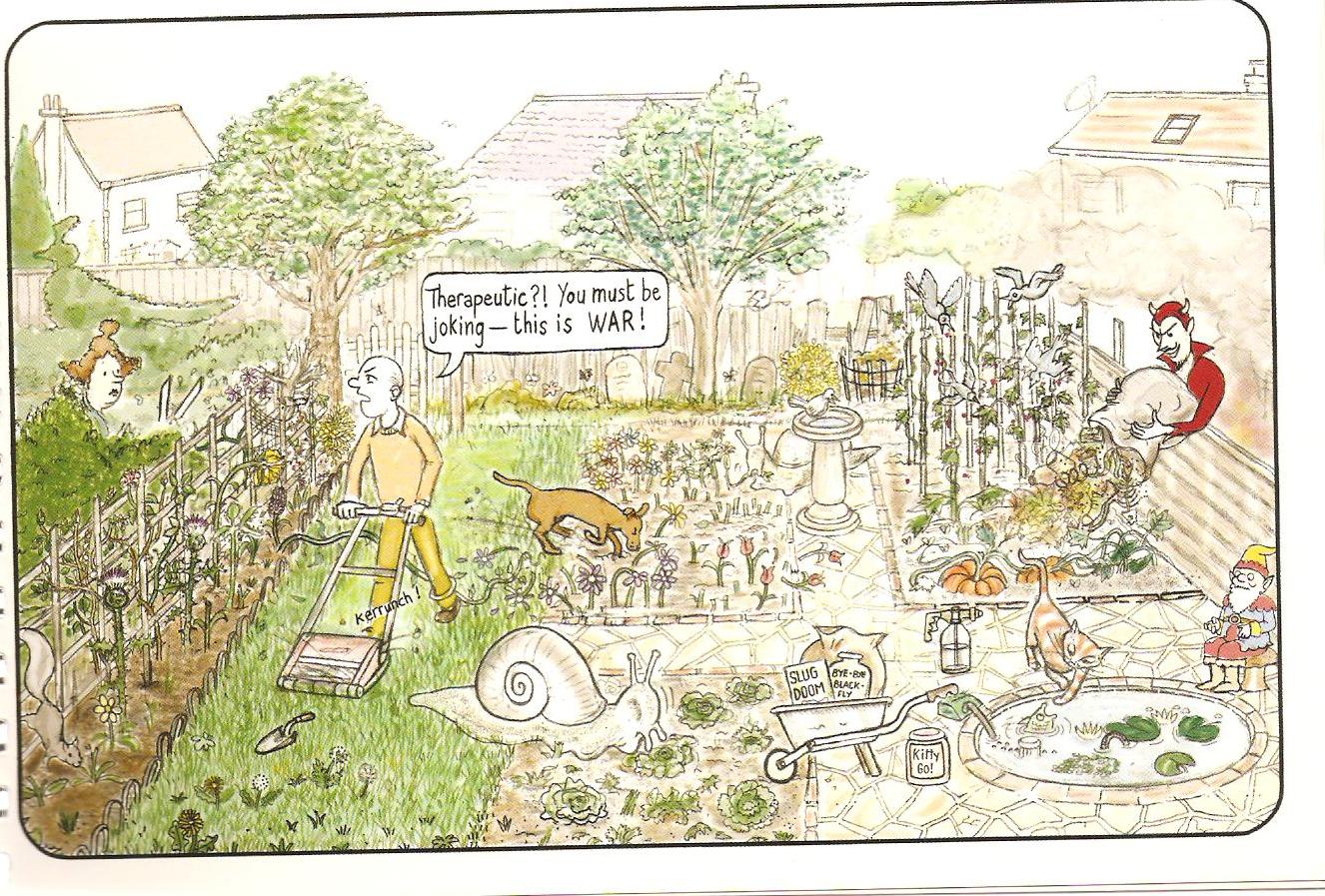
To the True Brit a garden is not a place in which to loll on a sun-lounger reading the newspapers - it is a call to arms, a huge and open-ended responsibility, like bringing up children. While other Europeans may be content to water their window boxes, he (or just as often she) is out in the open, exposed to the rigours of the native climate, hacking at thistles, tying back the cotoneaster, or digging up a particularly tenacious lavatera.
What is it that drives him on? Is it really a love of flowers and growing things? Not entirely. Somewhere deep inside him there is and ancestral memory of times when wars and shortages meant growing your own. That"s why he is so proud of those ungainly cucumbers, those leathery cabbages or oversized marrows.
And there are other rewards, perhaps, of a more reflective kind: burning leaves on a summer"s evening, forking the potato peelings into the compost heap, or simply taking refuge in the sanctuary of his shed.

In other parts of the world builders build, plumbers plumb, and decorators do the decorating; in Britain such a dependence on mere professional would be a source of shame. Here, to be called "handy" is the highest possible praise.
Our Brit takes a pride in his chipping, chiselling, screwing and bodging. His eyes will shine as he shows you his range of power tools and grades of sandpaper. Not for him the current fashion for inviting TV crews to come into your home to complete a painless and highly public makeover. Indeed, the only real threat to his world is the disturbing modern trend for the lady of the house to get involved, and with it the discovery that most jobs might easily be completed in half the time.
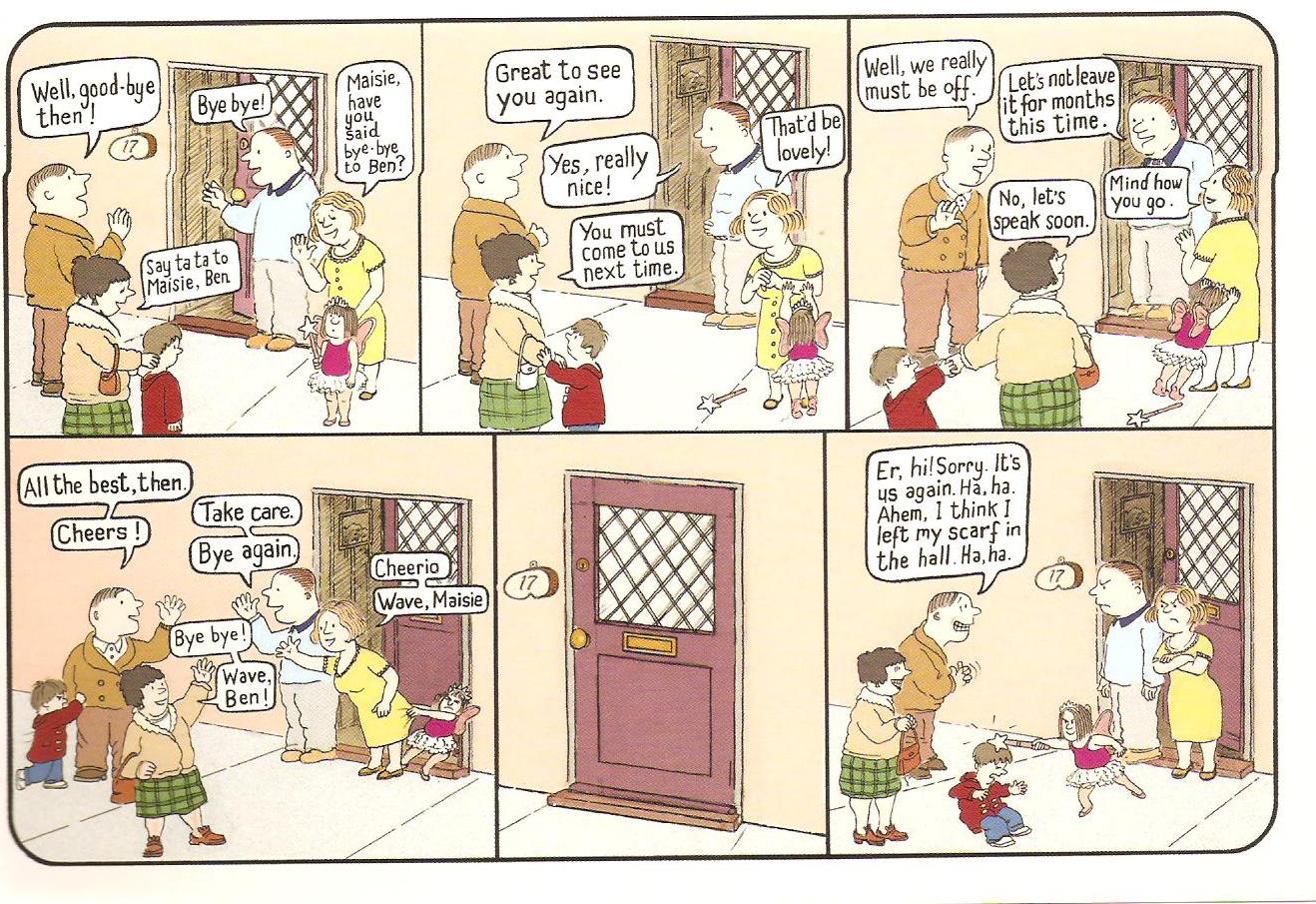
In Britain, why does so long take so long? For the True Brit, parting is every bit as complicated and fraught with risk as greeting. We find it difficult to say Hello, and we find it hard to say Good-bye. And the bit in the middle is none too easy, either. We have to decide whether to kiss, shake hands, or execute one of those stiff, short-armed waves that we use to fend off unwelcome intimacies. We need time to select from an extensive repertoire of leave-taking expressions from Well, I"ll be on my way then to a final faint Cheers! before disappearing over the brow of the hill.
Above all, we must try to avoid the awkwardness that can occur in extricating ourselves from a social encounter. One way is to order a taxi in advance: in the moments of flustered haste after the doorbell rings, the normal rules of leave-taking are waived and the long farewell amputated to a breathless, Oh dear! Wel! Thanks a lot! Bye!
Источник:
"The How to be British Collection", Martyn Ford & Peter Legon 2005, published by Lee Gone Publications
"The How to be British Collection Two", Martyn Ford & Peter Legon 2005, published by Lee Gone Publications